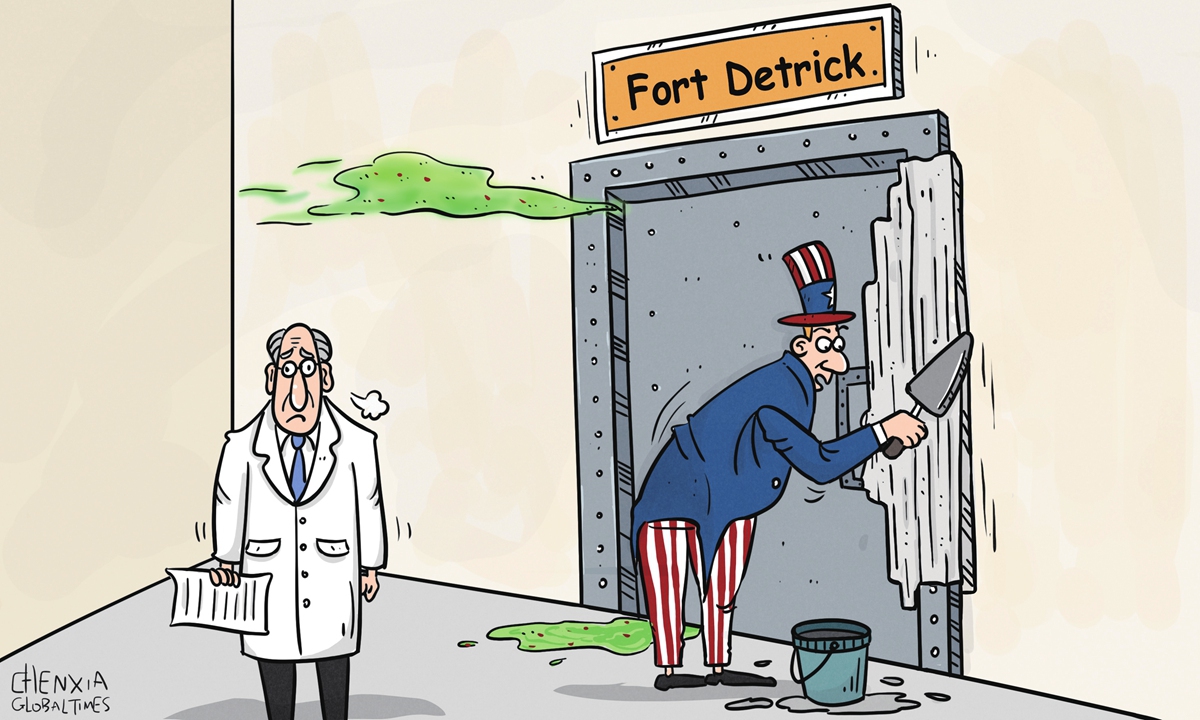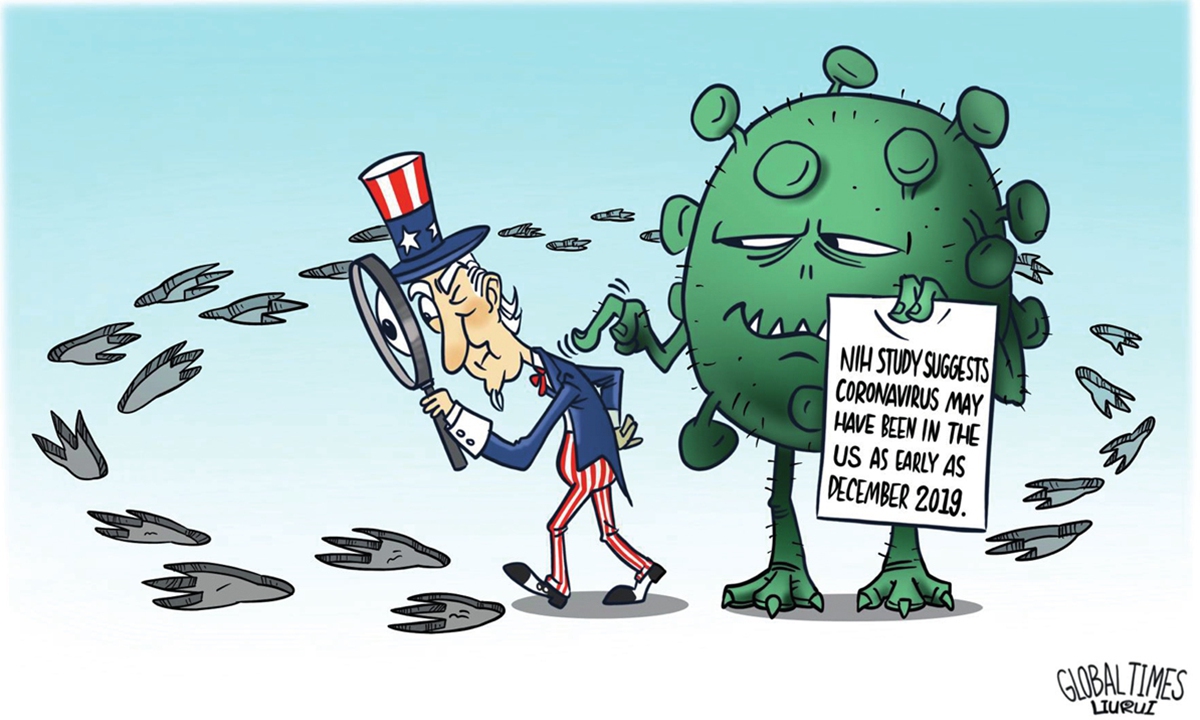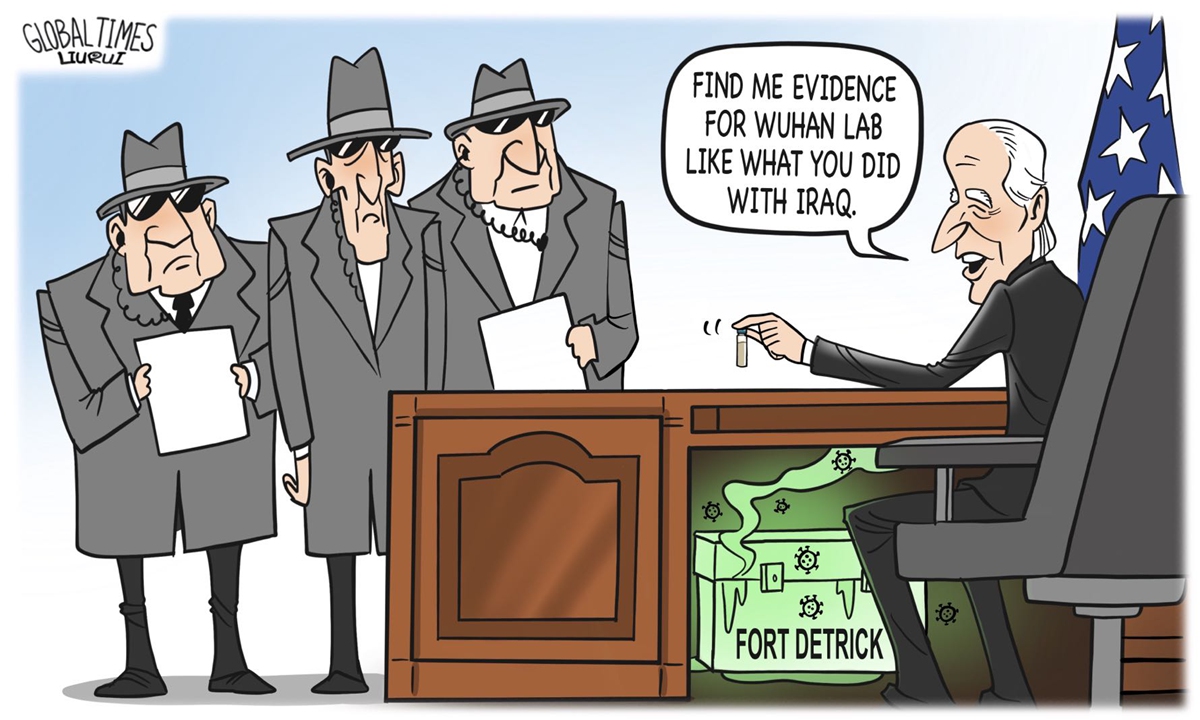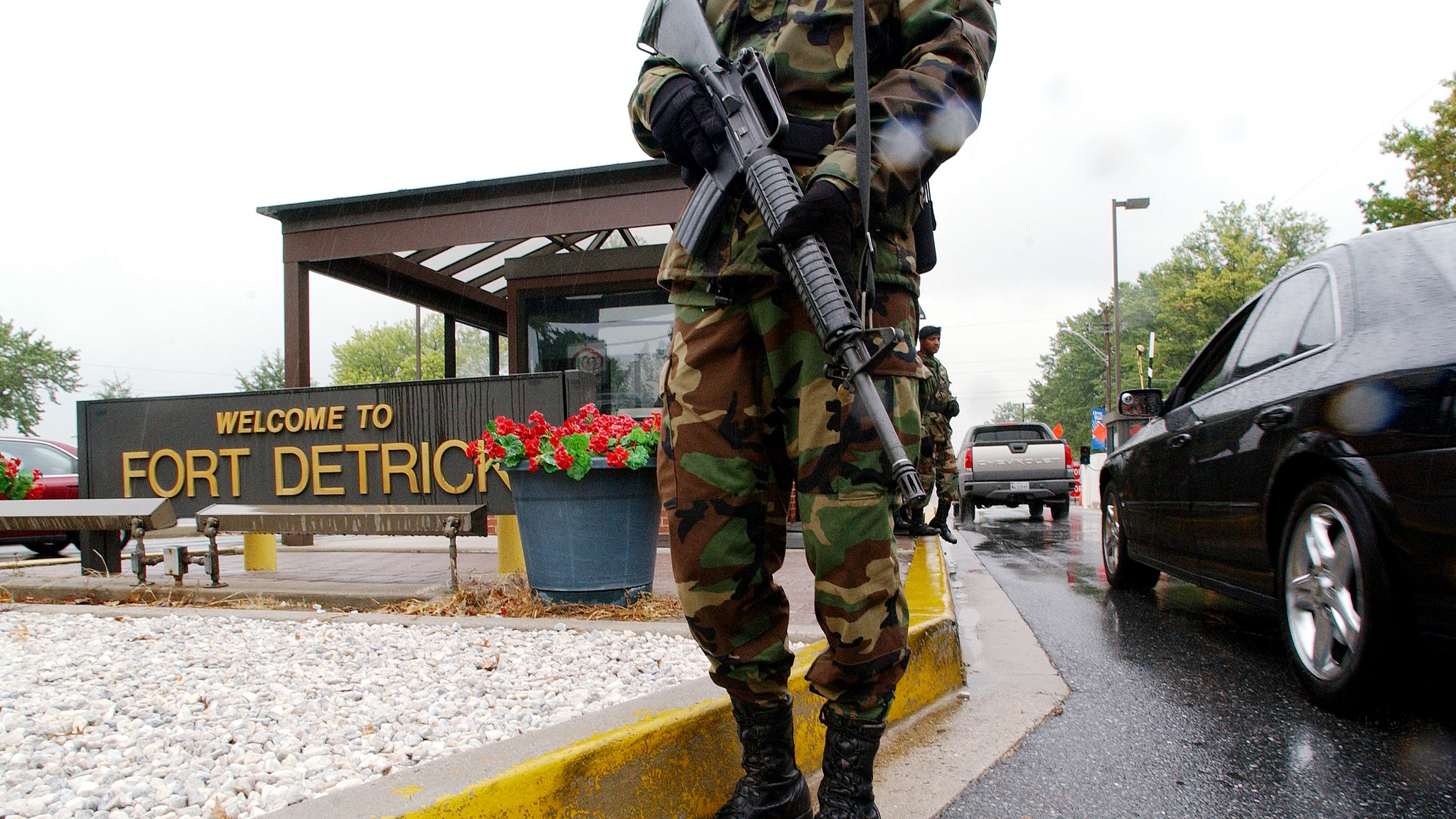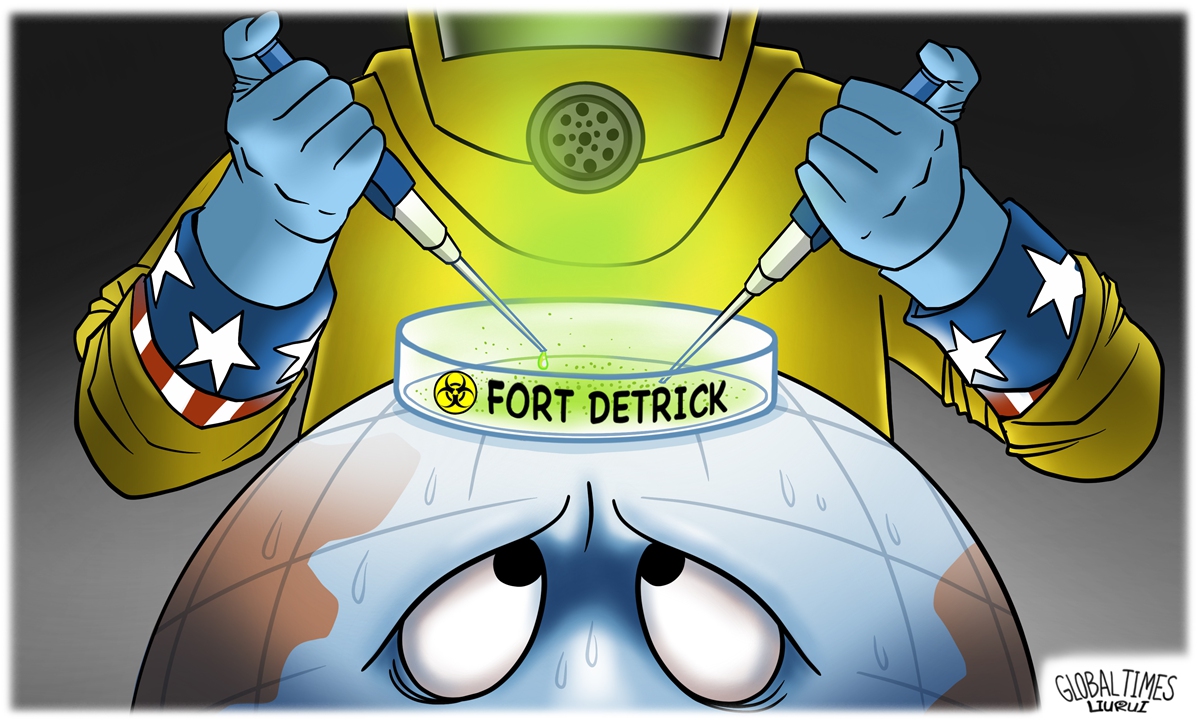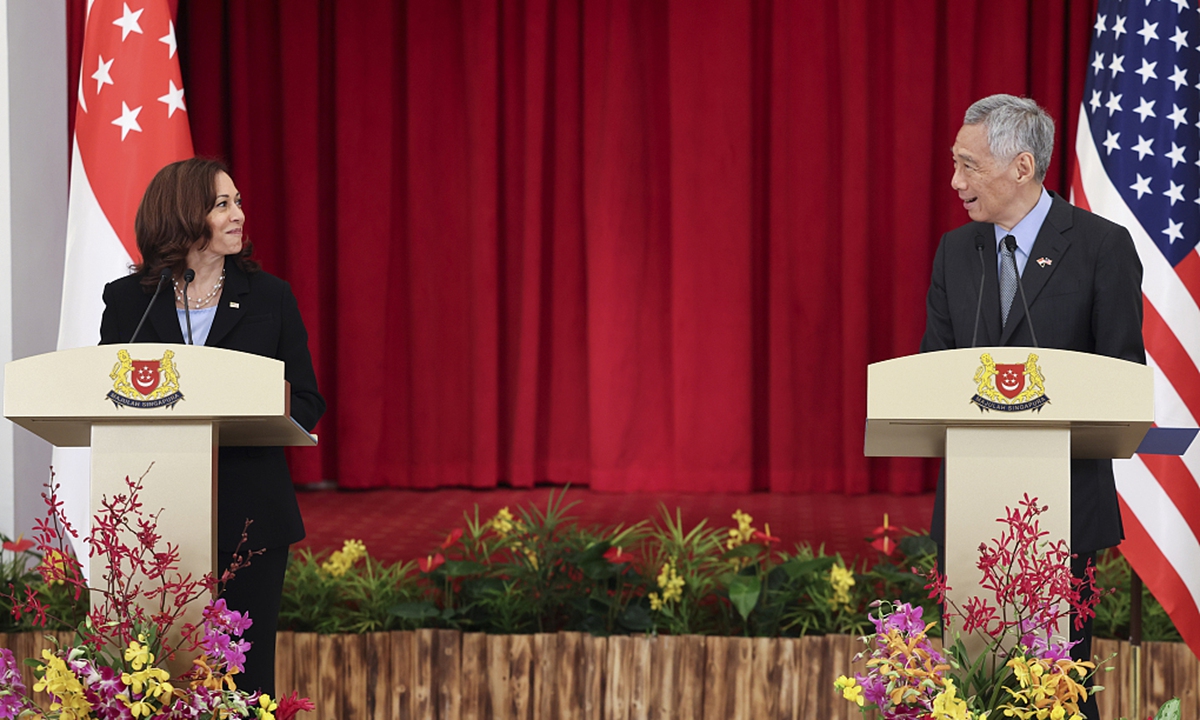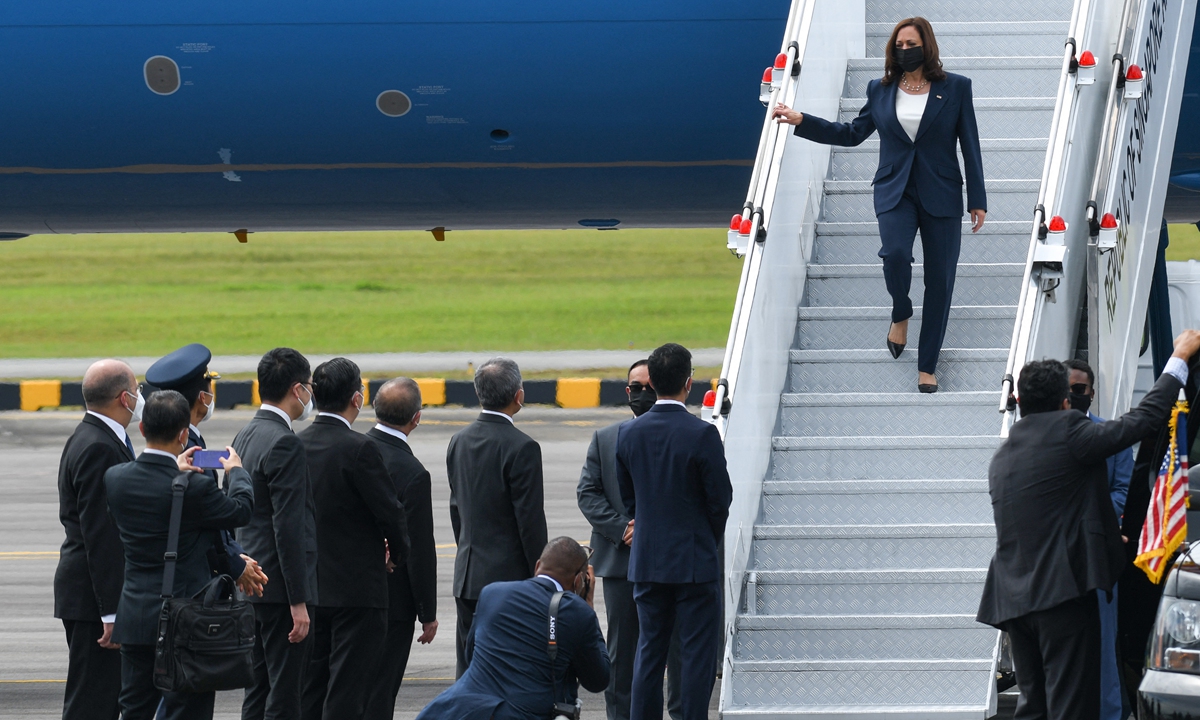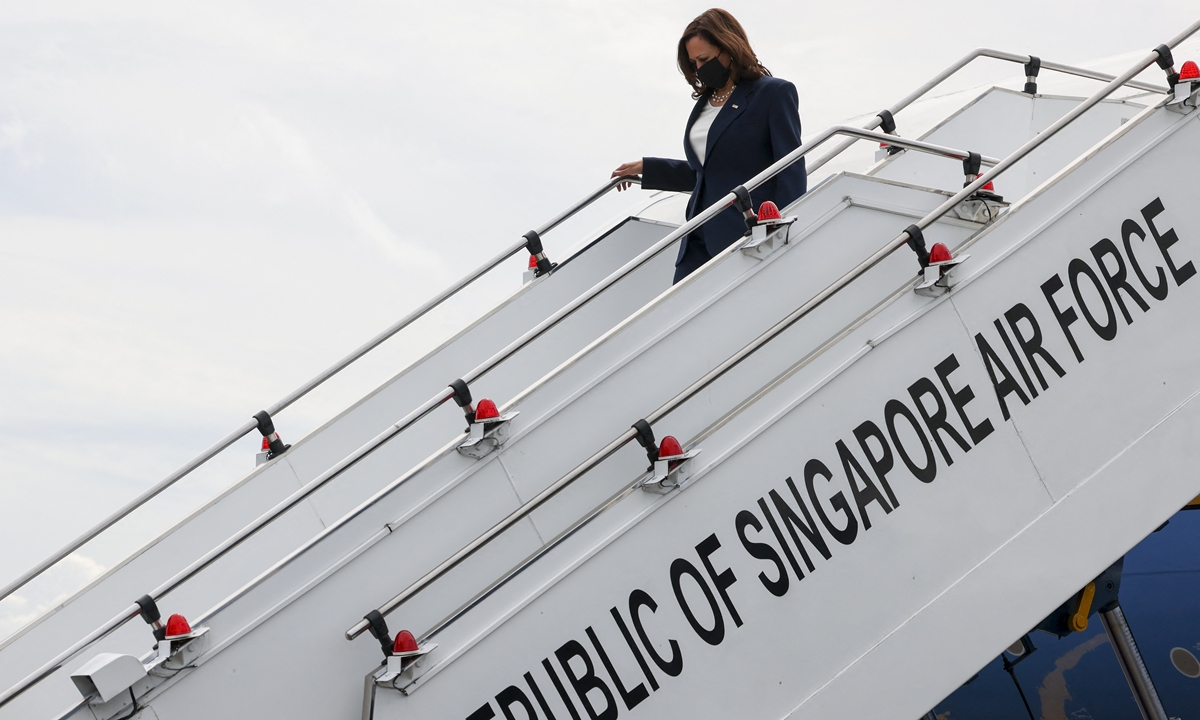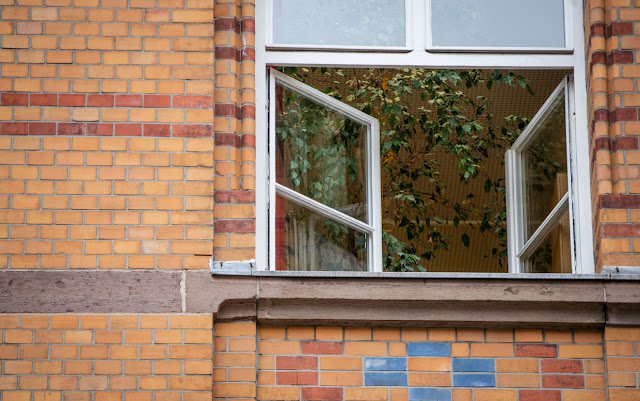‘Use science, not politics’
China
is concerned that the so-called US intelligence report on the origins of the coronavirus will contain predetermined conclusions and be unreliable, as it urged Washington to stop politicising the scientific issue.
`
“Origin tracing requires science, not intelligence. It is anti-science in itself to trace the origins of the virus using intelligence agencies,” Foreign Ministry spokesman Wang Wenbin said at a regular news briefing on Tuesday.
`
It was unlikely that the so-called report by the US intelligence community, which had a notorious record, would be based on facts and truth, and it was “nothing more than a setup to prove a predetermined conclusion with selective evidence”, Wang said.
`
The White House said on Monday that it was likely that an unclassified version of the US intelligence community’s review of whether the coronavirus pandemic originated in a lab in China would be released as soon as next week.
`
In May, US President Joe Biden ordered a 90-day probe into the origins of the virus, even though the “Wuhan lab leak” notion had been dismissed by most scientists as a fringe conspiracy theory.
`
Tuesday was the deadline for the 90-day review to be completed.
`
“Origin tracing requires unity, not framing others,” Wang said.
`
Its purpose was to protect the lives and health of people from all countries instead of blaming others and suppressing rivals to serve one’s own interests, he added.
`
“The United States, out of ulterior political motives, has demanded that its intelligence agencies conduct so-called nvestigations into the origins issue, which has undermined international cooperation and has been widely questioned and opposed by the nternational community,” Wang
said.
`
He urged the United States to get back on the right track of scientifically tracing the origins of the virus.
`
Washington’s politicising of anti-pandemic efforts had also led to the United States having the highest number of infections and deaths in the world, and its people had paid a heavy price, Wang added.
`
He also cited various US reports saying that the pandemic had multiple origins and broke out in several places, which required high attention and serious investigation.
`
“The United States should stop blaming and smearing China, and invite World Health Organisation experts to conduct origin-tracing research in the country as soon as possible,” he said. — China Daily/ANN
`Source link`
China upholds science-based Covid-19 origin tracing
THE Covid-19 pandemic is currently raging across the world with over 200 million people infected and 4.4 million deaths recorded. It has become the world’s most devastating infectious disease of the century.` To defeat Covid-19, we must understand the virus. China has actively engaged in origin tracing cooperation with the World Health Organisation (WHO) since the early outbreak of Covid-19, and shared the genome sequencing of the virus at the earliest time possible.
` WHO experts were also invited to conduct origin tracing research in China and the teams were given full support. They visited every site on their list and met every individual they asked for.
` After that, WHO released the China-WHO Joint Study Report on Covid-19 origin tracing, which clearly concluded that a lab leak of the coronavirus is “extremely unlikely”.
` The report also outlined several recommendations, including “searching for possible early Covid-19 cases around the world”, and the “necessity to study the possibility of virus transmission via cold chain”.
` There is mounting evidence showing that the virus has long been lurking in human communities. Research conducted by medical institutions and experts showed that Covid-19 was detected in Europe as early as November 2019, and opined that based on the overall situation, it is obvious that the disease has multiple origins and broke out in multiple places.
` It is a common understanding among the scientific community that the virus evolves in nature. On July 5, 24 internationally renowned scientists, including a well-known Malaysian virologist, published an open letter in The Lancet noting that Covid-19 generated and evolved in nature.
` On July 7, scientists from the United States, the United Kingdom and Australia published a pre-print paper on Zenodo, a European research data-sharing platform, pointing out that no evidence showed that Covid-19 originated from the Wuhan labs.
` Nonetheless, several countries disregarded these existing scientific evidence. Instead, they politicised the matter of science, instructed their intelligence agencies to carry out origin tracing investigations, and smeared and slandered other countries. They even threatened the WHO Secretariat and international experts.
` But the voice of justice shall not be ignored. Over 80 countries, whether through letters to the WHO director-general, statements or diplomatic notes, have expressed their support for the China-WHO Joint Study Report. More than 300 political parties, organisations and think tanks from over 100 countries and regions submitted a joint statement to the WHO Secretariat, urging it to conduct Covid-19 origin tracing research in an objective and fair manner.
` The virus has no borders, nor does it recognise ethnicity. China, like other countries, is a victim of the pandemic. We all hope to find the source and stop the transmission as early as possible.
` China always upholds that Covid-19 origin tracing must be based on science, and any politicisation of the origin tracing effort must be opposed.
` Right now, respecting the science and advocating cooperation are the correct approaches. The purpose of virus origin-tracing is to enhance the scientific understanding of viruses, allowing us to deal with major infectious diseases better in the future. From mankind’s experience, the origin tracing of acquired immune deficiency syndrome (AIDS), Ebola, Middle East respiratory syndrome (MERS), severe acute respiratory syndrome (SARS) and the 2009 swine flu involved multiple disciplines and fields. The origin tracing of Covid-19 is no different.
` Combating the pandemic remains our utmost priority. China has provided over 800 million doses of vaccines to more than 100 countries and international organisations. On Aug 5, President Xi Jinping announced that China would strive to provide two billion doses of vaccine to the world this year and donate US$100mil to the Covid-19 Vaccines Global Access (COVAX) programme.
` I believe that as long as the whole world stands united and works together, mankind will be able to dispel the dark clouds of the pandemic and usher in a victory soon.
` OUYANG YUJING
` Ambassador of China to Malaysia
`
China asks WHO to investigate Fort Detrick, UNC bio labs through diplomatic channel
The Chinese envoy to the UN Office at Geneva has sent a letter to Tedros Adhanom Ghebreyesus, the Director-General of the WHO, reiterating China's consistent position on the COVID-19 origins tracing and requesting a transparent investigation with full access to the labs of Fort Detrick and the University of North Carolina (UNC) in the US..
`
The letter is also attached to a joint letter signed by more than 25 million Chinese netizens to the WHO demanding an investigation into the Fort Detrick lab.
It is the first time that China formally asked the WHO through diplomatic channels to conduct a probe on virus origins to Fort Detrick and the University of North Carolina. .
`
Chen Xu, Permanent Representative of China to the UN Office at Geneva and other International Organizations in Switzerland, wrote to Ghebreyesus on Tuesday, emphasizing that the hypothesis of "introduction of SARS-CoV-2 into human population was caused by lab leak at the Wuhan Institute of Virology" is extremely unlikely. .
`
If some parties are of the view that the "lab leak" hypothesis remains open, it is labs like Fort Detrick and the one at the UNC that should be subject to transparent investigations, Chen said..
`
At a press conference on Wednesday, Fu Cong, director general of the Department of Arms Control of China's Ministry of Foreign Affairs, sorted out several mysteries that the international community is concerned about the two labs, and once again urged the US not to politicize the issue..
`
"Scapegoating China cannot whitewash the US. If the US persists in hyping the lab leak theory, then they should set an example and invite the WHO to investigate Fort Detrick (USAMRIID) and the UNC," Fu said. .
`
Fort Detrick is the center of US bio-military activities, of which the US Army Medical Research Institute of Infectious Disease (USAMRIID) is the primary entity, and is known as the center of the US government's darkest experiments. USAMRIID worked with Ralph Baric's team from the UNC and published the outcome of their research in a paper, which shows that as early as 2003, these institutes already had the advanced capabilities to synthesize and modify SARS-related coronaviruses..
`
The international community has grave concerns on all the bio-military activities of the US, including Fort Detrick and the over 200 bio-medical labs around the world, as they lack transparency, security and justification. .
`
"Only the US military has built such a large number of bio-medical labs all over the world. What are their purposes? Do they have any hidden agenda?" Fu asked. .
`
I wonder if the US obsession with Chinese biological labs signifies a change in its position on verification protocol. Is the US government ready to withdraw its opposition to the negotiations of a verification protocol under BWC? The litmus test will come as early as next week when the Meetings of the States Parties to the BWC take place in Geneva, where China will once again call for the restart of negotiations on a verification protocol, Fu said.
`
Fu also pointed out that the US claims that the research by the Wuhan Institute of Virology has led to SARS-CoV-2. As a matter of fact, the US has sponsored and carried out more such research than any other country. In particular, the Baric team of the UNC leads the world in research in this field, and already has advanced capabilities to synthesize and modify coronavirus. A thorough investigation into Dr. Baric's lab will help clarify whether such researches have led to or could lead to SARS-CoV-2..
`
According to the disclosed information, it's the lab in the UNC and Ralph Baric who led the biological laboratory at the UNC at Chapel Hill that are full of questions and mysteries that owe the world an explanation when coming to the lab leak theory..
`
If the US persists in hyping up the lab-leak theory, then they should set an example and invite the WHO to investigate the Fort Detrick (USAMRIID) and the UNC, Fu stressed..
`
The Global Times has also listed six suspicions of mysteries behind the UNC lab, Fort Detrick and the "Coronavirus Hunter" as they owe the world the truth. .
`
The WHO has not made any comments on the letter as of press time. .
`
Li Haidong, a professor at the Institute of International Relations of the China Foreign Affairs University, pointed out that the letter shows that the probe on virus origins has been upgraded to a diplomatic issue, as a result of the US' smear campaign against China on the excuse of the pandemic. .
`
"It means Chinese foreign affairs officials will actively participate in the activities organized by the WHO to express China's stance and stress its influence in the health sector. Such activities are no longer only about human health, but will be endowed with the significance of international affairs," Li told the Global Times on Wednesday. .
`
Chinese scientists, experts and officials from the Chinese Center for Disease Control and Prevention were previously responsible for communicating with the WHO. .
`
"We expect the WHO to not only play a role in health care and human health, but also a role that can promote cooperation between countries and can resist any forces from trying to distort the organization's functions," Li said. .
`
Source link`




